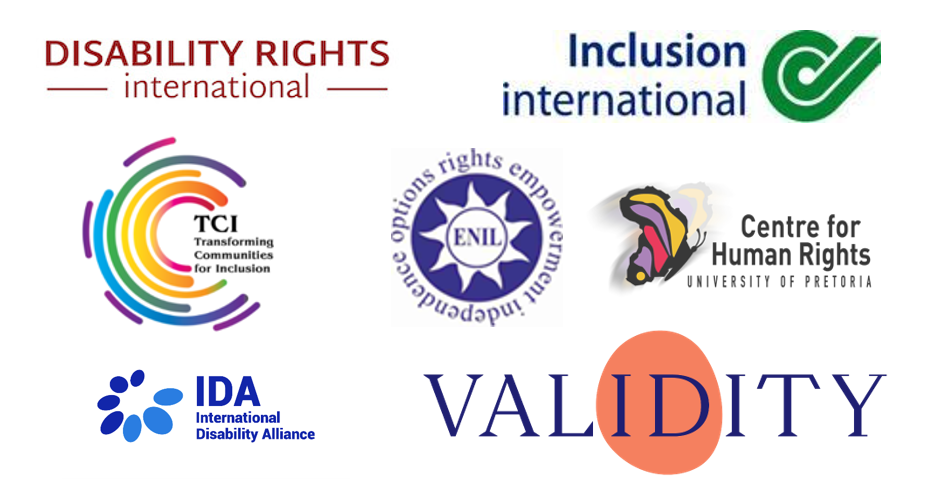Category: I’m A Person
-

Statement of the Global Coalition on Deinstitutionalization on adoption of the Global Charter on Care Reform for Children
The Global Coalition on Deinstitutionalization (GC-DI) welcomes the new Global Charter on Care Reform for Children, initiated by David Lammy (former UK Foreign Secretary, now Deputy Prime Minister) which brings focus and attention to the crisis caused by the institutionalization of children, with children with disabilities being disproportionately affected. We welcome that the Charter reaffirms…
-

Zambia’s Historic First: Legal capacity Communication submitted to the African Commission on Human and Peoples’ Rights
On 21 August 2025, The Validity Foundation, together with the Mental Health Users Network of Zambia (MHUNZA) and Disability Rights Watch (DRW) with the technical support of the International Commission of Jurists (ICJ) and the Southern Africa Litigation Centre (SALC), have submitted a landmark communication to the African Commission on Human and Peoples’ Rights (African Commission).…
-

Access to justice and to an effective remedy are crucial for children with disabilities
Without access to justice and to an effective remedy children with disabilities are often forgotten about, institutionalised and ill-treated. In the case of V.I. v. The Republic of Moldova, Validity convincingly argued before the European Court of Human Rights that the denial of access to justice for children with disabilities is rarely an individual violation…
-

Woman with Lived Experience of Institutionalisation Wins Landmark Case Against Psychiatric Hospital in Bulgaria
On 23 April 2025, a district court in Stara Zagora, Bulgaria, awarded substantial damages to Tanya Petkova, a woman with psychosocial disabilities, for repeated periods of psychiatric detention and coercive practices violating her dignity and autonomy and for the trauma inflicted upon her. The decision is a rare judicial acknowledgment of the impacts of intersecting…
-

ENIL and Validity reaction to the Concluding Observations of the Committee on the Rights of Persons with Disabilities on the European Union
The European Network on Independent Living – ENIL and the Validity Foundation welcome the adoption of the concluding observations on the combined second and third periodic reports of the European Union by the United Nations Committee on the Rights of Persons with Disabilities (CRPD Committee). In the concluding observations, adopted on 18 March, the CRPD…
-

Update: Validity’s work at the United Nations
At the beginning of 2025, Validity worked on and submitted three submissions to UN Treaty Bodies. We contributed to the work of the United Nations Committee on the Rights of Persons with Disabilities (CRPD Committee) and the United Nations Committee on the Elimination of Discrimination against Women (CEDAW Committee). Holding the EU Accountable: Validity’s Submission…
-

Landmark Ruling: European Court Finds Moldova failed to Protect Woman with Disabilities from Servitude
First-ever European Court decision on servitude of persons with disabilities reveals systemic failures in Moldova’s deinstitutionalisation practices The European Court of Human Rights has delivered a groundbreaking judgment concerning the right of a woman with disabilities not to be held in servitude and forced labour. The Court found that Moldova had violated the rights of…
-

Seasonal Appeal 2024
In 2024, our client Victor achieved a major victory at the European Court of Human Rights. His experience of torture and discrimination as a young person in Moldova was recognised as a grave human rights violation by the highest court in Europe. The judgment represents a major step forward for Victor and others in similar…
-

Topház: European Court of Human Rights finds Hungary failed to protect right to life of residents, must investigate links between death and disability
In a ground-breaking judgment today, the European Court of Human Rights (“the Court”) condemned Hungary for failing to protect the lives of institutionalised persons with disabilities. States must effectively investigate the context and conditions in which people in institutions die, the Court also said. The judgment sends a strong message against institutionalisation and guardianship regimes…

